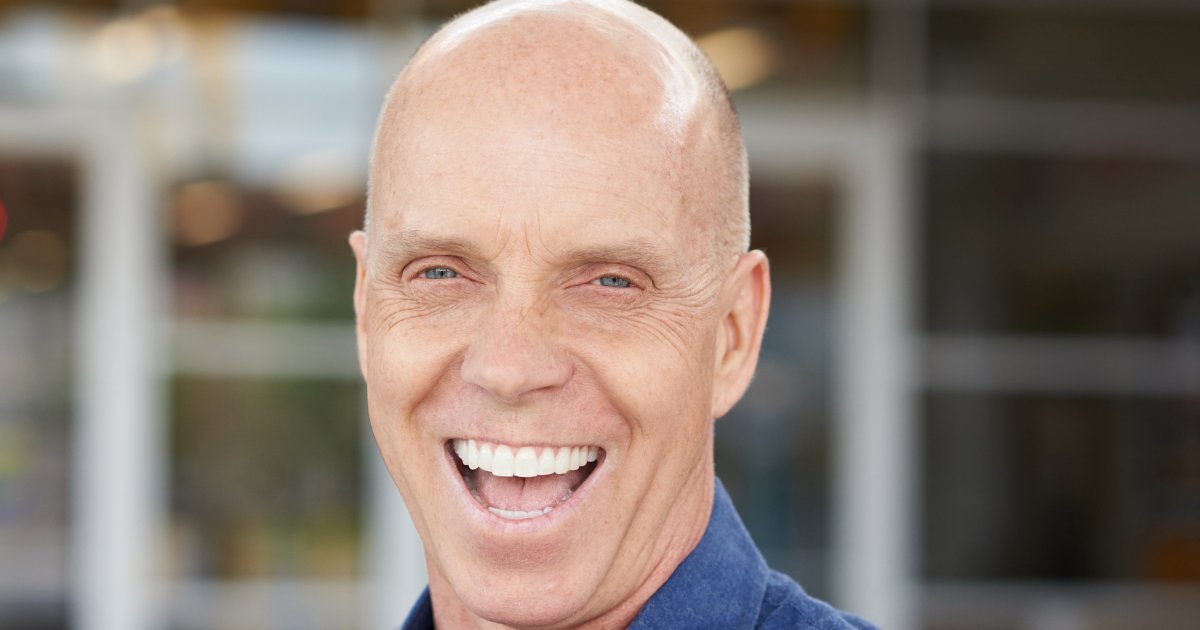The Olympic gold medalist Scott Hamilton is one of the more positive human beings you’ll ever meet. June is Men’s Health so we want to make sure people get a chance to hear from a guy who has faced tremendous health battles and come out the other side.
Scott Hamilton and His Battle With Cancer
Olympic gold medalist Scott Hamilton, 61, has done far more than beat competitors in the rink. The broadcaster, cancer advocate and, now, author of a children's book to help kids cope with a parent's cancer diagnosis, has inspired so many with his positivity, and the grace with which he lives his life.
Read MoreHow Scott Hamilton Coped with His Cancer Diagnosis
One of the ways Hamilton tried to solve problems was through being a co-founder of Chemocare.com, "a website for anything you need about chemotherapy in eighth grade English and Spanish. [People] can go on chemocare.com and understand better what they're going through," he says.
Another way was by trying to help children cope with a parent’s cancer diagnosis through writing books like his latest book "Fritzy Finds a Hat: A Gentle Tale to Help Talk with Children About Cancer" illustrated by his friend and country star Brad Paisley.
Hamilton and his wife, Tracie Hamilton, have four kids the couple adopted a boy and girl, siblings, from Haiti in 2014 and his own journey, of course, went into the book's creation. But the book was actually inspired by Hamilton’s beloved mother, Dorthy Hamilton, who died of breast cancer when he was a teenager.
https://www.instagram.com/p/B7ugTYbhirZ/?utm_source=ig_embed
How Scott Hamilton’s Mother Taught Him About Cancer

Dorothy Hamilton was 49 when she passed away, two years after being diagnosed. Scott Hamilton told us how she inspired him, "she told me [about her diagnosis] and how she prepared us for cancer," he says. "It was not done in a really scary way. She was very upbeat, almost positive, and kind of smiling when she said she had cancer. I was like, 'I thought cancer was a bad thing.' But she didn't appear that it bothered her at all."
By not appearing concerned by the diagnosis, she gave her children permission not to be as well, Hamilton says. His mom also gave them a sense of purpose, just like Fritzy in his book does, when he sets off to find a hat to keep his mom warm.
"The whole idea behind 'Fritzy Finds a Hat' is mom has got a problem and Fritzy's going to solve it," says Hamilton. "[My mother] informed us that she was going to need some help and some support around the house. And so, that empowered us to be a part of her journey."
Scott Hamilton Giving Back to the Cancer Community
In 1997, Hamilton was diagnosed with testicular cancer and then returned to skating after a public battle with the disease. He retired in 2001 and, in 2004, found himself facing the first brain tumor. The second was in 2010 and the third, 2016.
When Hamilton was diagnosed with the initial brain tumor, his first son, Aidan, was only 1 years old. When he was diagnosed again, Aidan was 7 and his second son, Maxx, was 2 years old too young, Hamilton says, to fully understand what their dad was facing.
When he was diagnosed with his third brain tumor, he says, he took what his mom taught him and, when they asked if his brain tumor was back, Hamilton says he gave them a straightforward answer: "'It is.' And I just put the biggest smile on my face. And they go, 'Are you going to be OK?’"
His answer? "'Of course! I'm fine. Do I look nervous? … Everything is fine. And I'm not sweeping it under the rug.’"
It's important, Hamilton says, to know about how to talk to children about cancer, and for them to know "that they have the power and the ability to help their parents regardless of what the struggle is."
Hamilton has found a multitude of ways to help other cancer patients, survivors and their families. On the fundraising side is the Scott Hamilton Cares Foundation, dedicated to funding innovative research. As for support, he created the 4th Angel Mentoring Program, in which patients and caregivers are matched with trained volunteer mentors with similar age and cancer experiences.
"Every day that I'm going through this, I'm going to find a way to laugh, I'm going to find a way to enjoy myself," Hamilton says. "I'm going to find a way to love on my family and my friends. It's a journey."
Stigma Surrounding Testicular Cancer
Dealing With the Shame That May Come With Testicular Cancer
There is stigma surrounding a testicular cancer diagnosis, which could detract from a man’s motivation to get physicals and check in with their doctors.
"Shame is an important topic when it comes to cancer," says Tripp Hornick, a testicular cancer survivor who was diagnosed when he was just a 21-year-old college student. "I think we as men have an awful lot that we can learn from what women have to go through with breast cancer." Tripp emerged from his experience with an extremely positive message: Do not be a victim. "What you accomplish is what cures any shame," Tripp says, and there's no reason you can't go on to live a happy and fulfilling life.
Learn more about SurvivorNet's rigorous medical review process.


